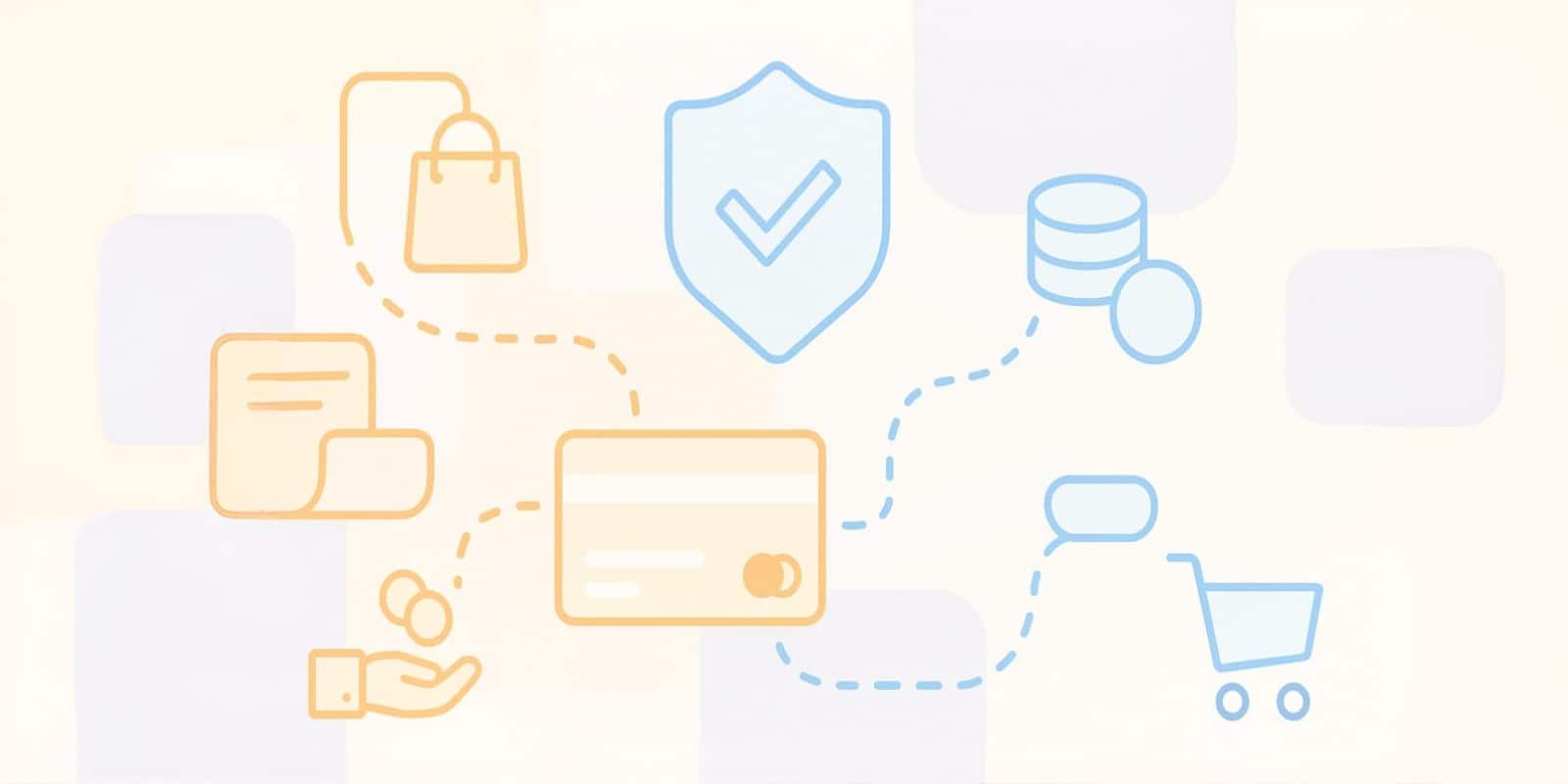Płatności SaaS
Czym jest kaskadowy system płatności w kontekście SaaS?

Czym jest kaskadowy system płatności w kontekście SaaS?
Zautomatyzowana, inteligentna metoda kierowania płatnościami subskrypcyjnymi nazywana jest kaskadowym systemem płatności. Mechanizm kaskadowy natychmiast przekierowuje płatność do drugiego, a nawet trzeciego procesora, aby ponowić próbę transakcji w czasie rzeczywistym, jeśli napotka przeszkodę z początkowym procesorem płatności i zakończy się niepowodzeniem. Oto kroki, które są w to zaangażowane:
- Pierwsza próba: Twój główny gateway płatności (Procesor A) otrzymuje zaplanowaną płatność subskrypcyjną.
- Identyfikacja awarii: Procesor A zwraca tzw. „miękką odmowę”.
- Natychmiastowe przekierowanie (“Kaskada”): System natychmiast przekazuje tę samą transakcję do innego, wstępnie skonfigurowanego gatewaya (Procesor B), zamiast po prostu się poddać lub czekać na kolejną próbę.
- Rozwiązanie: Procesor B autoryzuje transakcję w oparciu o swoje unikalne algorytmy ryzyka i powiązania bankowe. Klient nie doświadcza żadnych zakłóceń, a płatność przebiega pomyślnie.
Jak system kaskadowy bezpośrednio wpływa na moje przychody z SaaS?
System kaskadowy funkcjonuje poza technicznymi funkcjami; ma on związek z generowaniem przychodów. Korzyści są dwojakie:
- Wpływ na odzyskiwanie przychodów: Jego celem jest odzyskanie transakcji, które mogły nie zostać zakończone. Zmiana wskaźników autoryzacji płatności o 5-10% wiąże się ze zmianą dostępnych środków dla firmy.
- Zmniejsza mimowolną utratę klientów: Zapobiega utracie klientów z powodu tymczasowych usterek technicznych. Utrzymanie płacącego klienta jest znacznie bardziej opłacalne niż pozyskanie nowego. Ten system chroni Twoją ciężko zdobytą bazę klientów.
|
Metryka |
Bez kaskadowania |
Z kaskadowaniem |
Wpływ |
|
Wskaźnik udanych płatności |
Standardowa średnia branżowa |
Znacznie zwiększony |
Więcej zrealizowanych transakcji |
|
Wypływ mimowolny |
Wyższy z powodu odrzuceń typu „soft decline” |
Dramatycznie zmniejszony |
Lepsza retencja klientów |
|
Przychody |
Utrata potencjalnych przychodów |
Zoptymalizowane i odzyskane |
Wyższe miesięczne przychody cykliczne |
Czy możesz podać mi prosty przykład działania kaskady płatności?
Zdecydowanie. Prześledźmy pojedynczą transakcję fikcyjnej firmy SaaS, “CodeStream.”
- Termin odnowienia: Klient w Niemczech ma do zapłaty miesięczną opłatę za odnowienie w wysokości 50 €.
- Próba nr 1: System CodeStream wysyła płatność do swojego głównego procesora, który ma siedzibę w Stanach Zjednoczonych. Ogólny komunikat o odmowie realizacji transakcji “Do Not Honor” może zostać zwrócony przez silnik ryzyka procesora, jeśli bank, który wydał kartę, nie zostanie rozpoznany.
- Kaskada: Zamiast zakończyć się niepowodzeniem, kaskadowa logika CodeStream’ natychmiast przekierowuje transakcję na 50 euro do dodatkowego procesora, który ma silne europejskie partnerstwa bankowe.
- Sukces! Drugi procesor rozpoznaje bank wydający, uznaje transakcję za wiarygodną i zatwierdza płatność.
- Rezultat: Klient zachowuje nieprzerwany dostęp do CodeStream, a CodeStream skutecznie pobiera swój przychód. Cały proces odbywa się w ciągu milisekund.
Jakie rodzaje błędów płatności może rozwiązać kaskada?
Kaskadowanie zostało zaprojektowane specjalnie w celu rozwiązania problemu tymczasowych odmów (tzw. "soft decline"). Są to przejściowe, naprawialne błędy. Kaskadowanie nie rozwiązuje problemu stałych odmów (tzw. "hard decline"), które są trwałymi błędami wskazującymi na nieprawidłowe źródło płatności.
Zrozumienie tej różnicy jest kluczem do docenienia wartości kaskadowania.
|
Typ odmowy |
Definicja |
Przykłady |
Czy kaskadowanie może pomóc? |
|
Odrzucenie tymczasowe |
Przejściowy błąd, w którym karta jest ważna, ale transakcja nie została zatwierdzona. |
• Flagi ryzyka procesora • Nieaktualne dane karty (poprzez aktualizacje sieci) • Przejściowa awaria sieci wystawcy • Nieprawidłowe routingu |
TAK – Właśnie do rozwiązania tego problemu stworzono kaskadowanie. |
|
Odrzucenie ostateczne |
Trwały i ostateczny błąd banku wydającego. |
• Skradziona lub zgubiona karta • Nieprawidłowy numer karty • Zamknięte konto • Nie ponawiaj próby |
NIE – Ponawianie tych transakcji jest bezcelowe i może spowodować dodatkowe opłaty. |
Czy muszę samodzielnie zarządzać relacjami z wieloma procesorami płatności, aby korzystać z kaskady?
Historycznie tak. To była największa bariera wejścia dla większości firm SaaS. Musiałbyś:
- Negocjować i podpisywać umowy z wieloma operatorami płatności.
- Zarządzaj oddzielnymi wymogami zgodności i bezpieczeństwa dla każdego.
- Buduj i utrzymuj złożone API integracje dla każdego bramka płatnicza.
- Opracuj zaawansowaną logikę, aby skutecznie kierować transakcje.
To ogromny drenaż zasobów. Jednak nowoczesne podejście może sugerować inne wnioski.
W jaki sposób Merchant of Record (MoR) upraszcza konfigurację systemu kaskadowego?
A Merchant of Record jest jednym z czynników wpływających na wdrożenie strategii płatności takiej jak kaskadowa. MoR obsługuje cały cykl życia płatności w Twoim imieniu.
Oto jak MoR sprawia, że kaskadowanie jest bezproblemowe:
- Gotowa infrastruktura: Model MoR obejmuje relacje i integracje techniczne z globalną siecią operatorów płatności. Zyskujesz natychmiast korzyści z tej sieci.
- Pojedyncza integracja: Łączysz się z platformą MoR tylko raz. Zajmują się oni całą złożoną logiką routingu płatności i kaskadowania w tle. Nie są wymagane żadne dodatkowe integracje.
- Zoptymalizowana logika: System MoR wykorzystuje zaprogramowane reguły routingu oparte na takich czynnikach jak geografia, waluta, typ karty i historyczne wskaźniki sukcesu, które mogą wpływać współczynniki zatwierdzeń na każdej kaskadzie.
- Informacje biznesowe: Zunifikowany system raportowania gromadzi dane transakcyjne z różnych procesory płatności źródeł w jednym centralnym punkcie, co może ułatwić proces uzgadniania.
Współpraca z Merchant of Record takich jak PayPro Global zapewnia kaskadowy system płatności, potencjalnie wpływając na zasoby potrzebne do rozwoju wewnętrznego. Możesz skupić się na swoim produkcie, podczas gdy Twój MoR koncentruje się na zapewnieniu Ci płatności.
Wniosek
Chociaż kaskadowanie płatności to złożona technologia, jej wdrożenie nie musi takie być. Merchant of Record oferuje to potężne narzędzie oszczędzające przychody od razu po wyjęciu z pudełka, umożliwiając ochronę bazy klientów i skupienie się na rozwoju, a nie na infrastrukturze płatniczej.